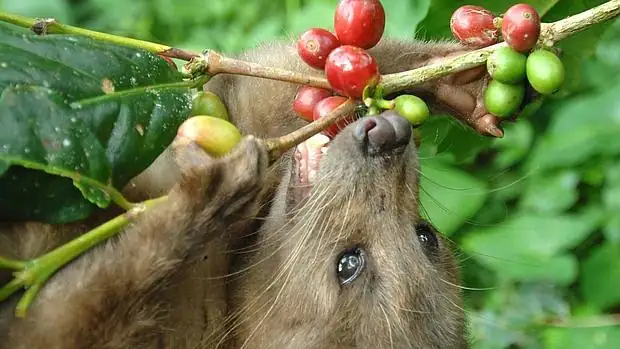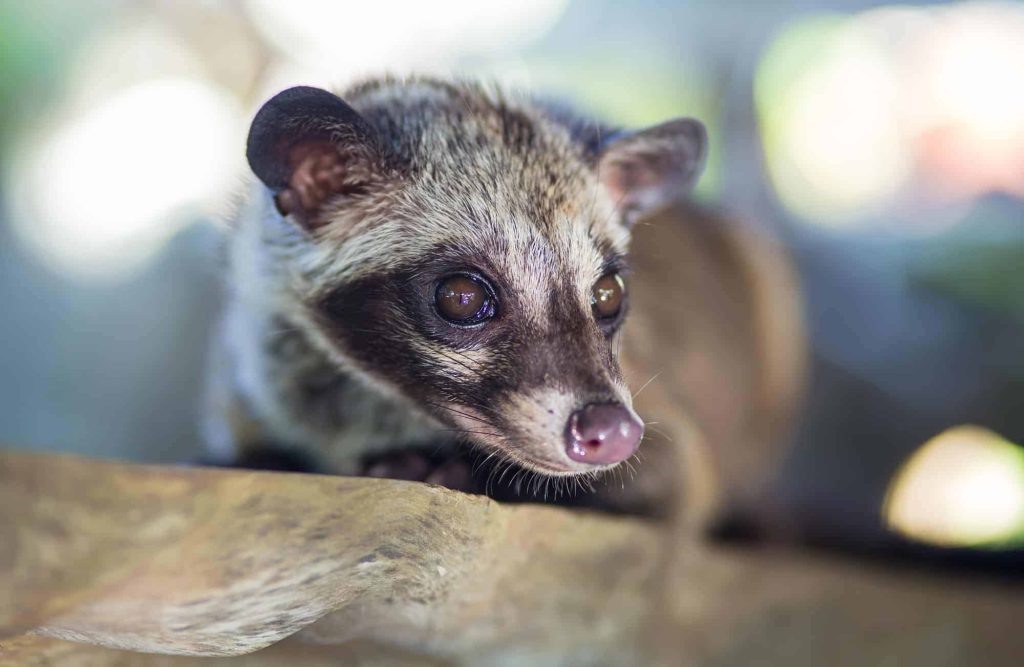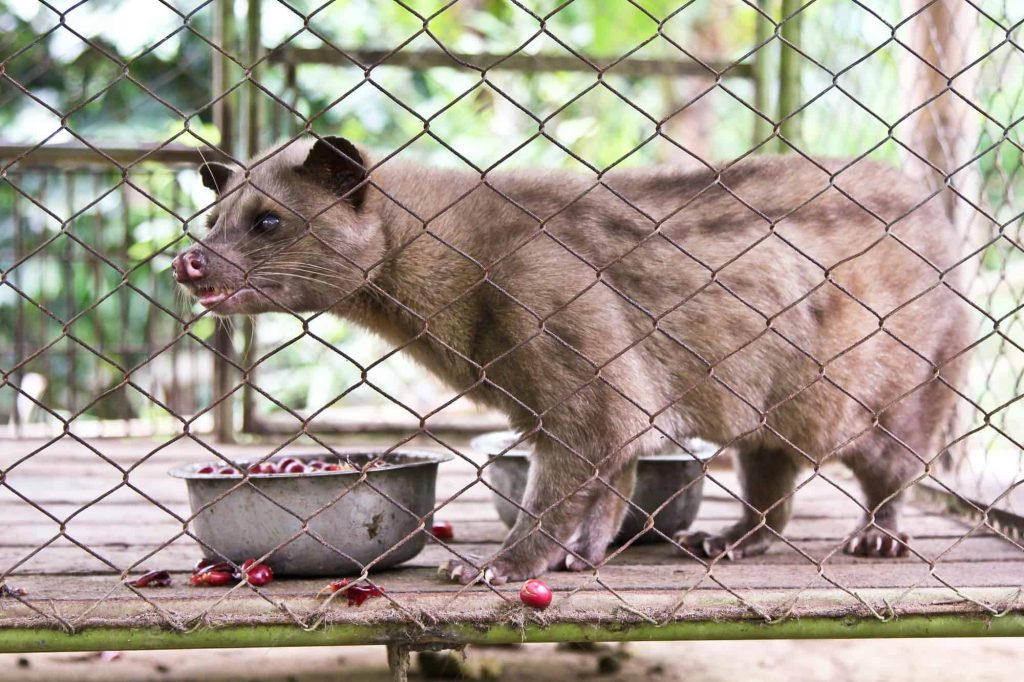

All baristas have been asked and continue to be asked this question: Is it true that the most expensive coffee in the world comes out of the poop of a Monkey? YES IT IS TRUE!
But first let’s tell it like it really is….

IT IS NOT A MONKEY! It is a CIVETA and it is a nocturnal mammal that looks more like a cat, these little animals are a type of vivérrido. This means that they are carnivorous species similar to cats. We can say that they are a mixture of opossumand raccoon and even have a snout similar to that of mongooses
Civets live in Southeast Asia and sub-Saharan Africa. Their wild variety mainly inhabits the tropical rainforest. While those found in Indonesia, specifically on the islands of Sumatra or Java. They are famous for their coffee, so it is easy enough to find raw and ripe fruits from the coffee tree

Now, how did we taste the KOPI LUWAK. or Civet Coffee?

Before I begin to tell you about the tasting, I would like to give a special thanks to José Tijerina, a very valued client of EL AMIGO COFFEE who had a 100-gram or 3.5-ounce jar that had been given to him as a gift and wished to taste this coffee with an artisanal method to resolve his doubts and savor its enigmatic flavor.
– Upon opening the metallic jar that contains it, we see a coffee with a medium roast, selected beans of a dark caramel color, with an herbal fragrance.

– The filtering method we chose is the V-60 because it is the method that best enhances the notes and aromas of exotic coffees.
– We make a medium coarse grind and the fragrance released by the ground beans is even more herbal.
– We begin the filtering and the aroma that this coffee releases during the infusion is subtle soft caramel and herbal aromatics.
– We serve 2 cups of 12 ounces and the first impression is a medium-bodied coffee with a very light touch of Chocolate, very low acidity, and notes of green fruits and herbal.
In summary, it is a smooth coffee of medium body, but lacking in acidity, its flavor is not bad, but neither is it extraordinary as described by its producers. The digestive enzymes of the animal diminish the acidity of this coffee and a bright and balanced acidity are aspects that are highly valued in an exceptional coffee.
I would say that as an experience it was a good one and to taste these exotic types of coffee is the best way to clear doubts and to be able to tell these stories to clients and friends, but it is proven as it happens with coffees with large advertising and marketing budgets, that marketing is stronger than reality and in this case its value in the market is extremely high for what is obtained.
The BAD thing behind KOPI LUWAK. or Civet Coffee.

As the value of this coffee in the market is so high due to the stories that are woven for its production and the documentaries and movies where it is named have given it an aura of being super exclusive, humans have taken advantage of the civets and have already affected the species only for commercial interest.
Unfortunately, civets are the least privileged in the productive development of Kopi Luwak. Although, this product has gained “prestige and exclusivity” in the market. These animals, apart from losing their freedom, are also forced to consume the coffee fruits for months on end. Most of them are defective. The most worrying thing is that this abrupt change in their diet has caused nutritional deficiencies. As well as the loss of their fur.

Several animal welfare organizations have had the opportunity to visit several civet farms. Both in the Philippines and Indonesia. Where they were able to verify that most of them were in captivity and sick. They also showed signs of infections and stereotypies. Because the animals frequently moved their heads and turned around in their tiny cages.
Another discovery is based on the wire floor of the cages where these little animals are kept. Standing on these metallic materials can cause ulcers and abrasions. This means constant pain for this species.
From EL AMIGO COFFEE we invite our customers to be responsible consumers. Acquiring products free of animal abuse and contaminants. In the case of Kopi Luwak, it is an extremely expensive coffee, because it pretends to be exclusive. But its real quality does not justify its price at all.
To close this story:
YES, IT IS THE MOST EXPENSIVE COFFEE IN THE WORLD, BUT IT IS NOT THE BEST IN THE WORLD.
I would not pay $32 or $140 with a certificate (Supposedly: ¨The producers give a certificate that the Civetas are in the wild and not in captivity¨, but nobody has been able to verify if this is really true) For a jar of 3.5 ounces or 100 grams, where an innocent animal is mistreated only for economic interest and for the morbid desire of some ¨exclusive clients¨ that pay astronomical figures to taste what a few can take, and if we speak only of high-quality coffee.
I repeat again: ITS FLAVOR DOES NOT JUSTIFY ITS EXCESSIVE PRICE.